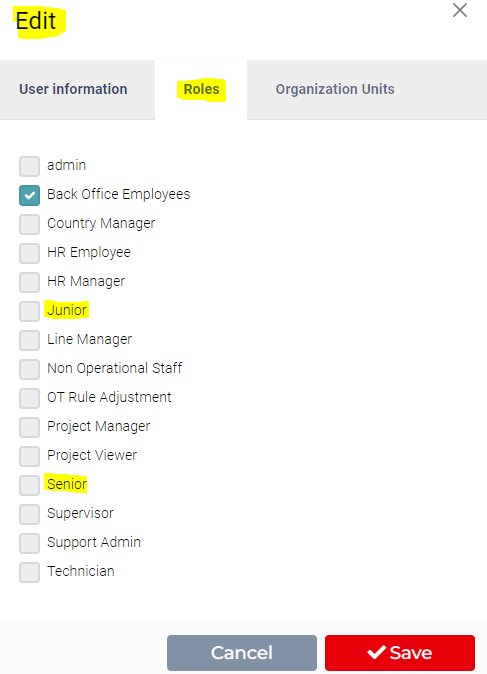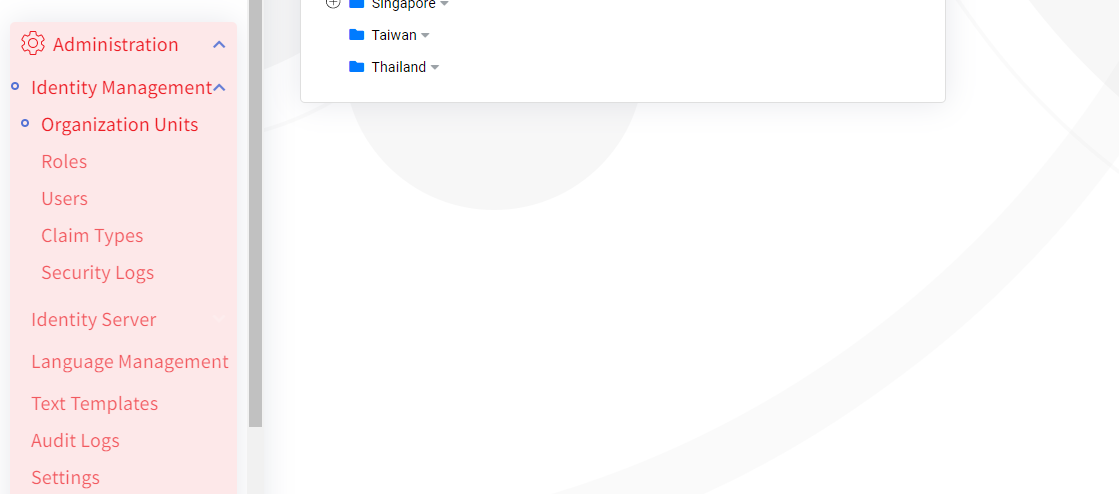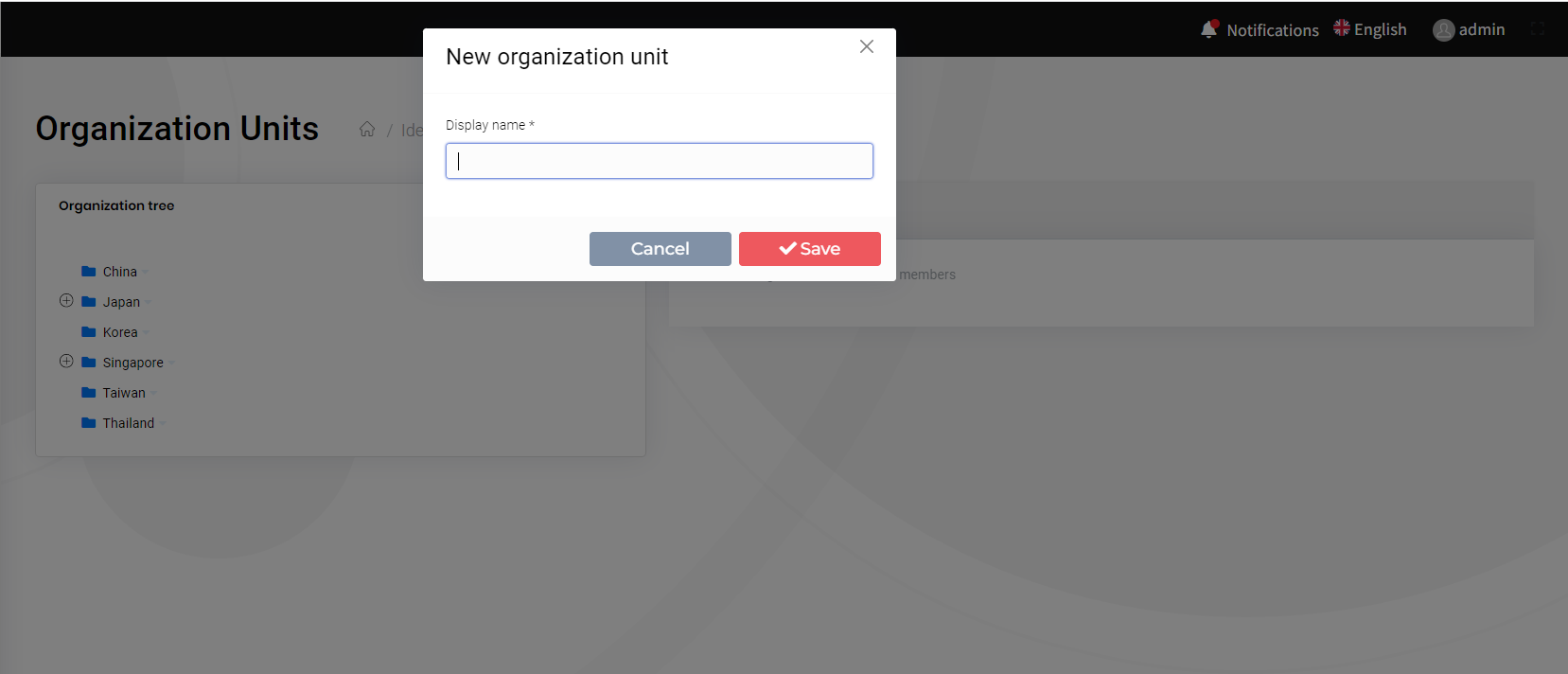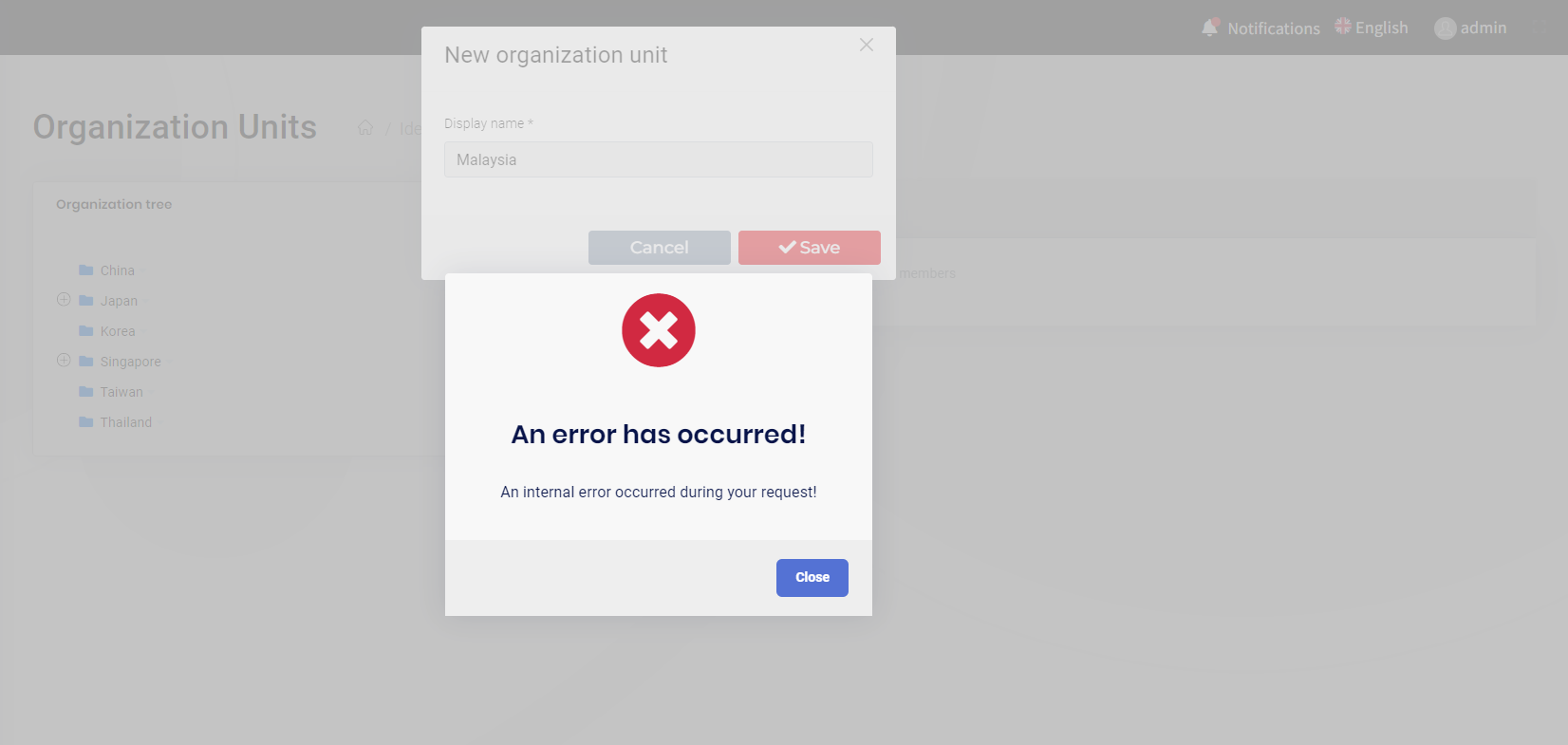Hi Support Team,
I want to test my develop environment at year end timestamp, so I changed host server date setting & my local setting to midnight of 31 Dec 2023.
However, after logging in dev, the browser tab was reloading infinitely and the console showed this:
My app stores token in local storage, I tried clearing them but it kept reloading, I also tried incognito mode but it is the same.
Is there a way to solve this?
Hi Support Team,
I would like to ask if there is a way to hide away "Junior" & "Senior" in the "User" => "Edit" popup as below:
 If there is any, could you show me how this could be achieved?
If there is any, could you show me how this could be achieved?
Hope to hearing from you guys soon.
Thanks.
Hi Support Team,
I have a requirement to hide/show certain pages based on current user role. So I came up with the idea to inject User Service into route.provider.ts, it looks like this:
Then, based on invisible property, I thought the page would hide/show as expected, but the variable isSAOnly is always false as the service did not get injected properly I assume.
So my question is: Is it possible to inject a service to route.provider.ts (as I haven't done it before)? If so, what is the correct way to implement it?
There's a similar thread , but what I want is to combine both user's permission & role, since the those 2 could be very much overlapped.
Hope to hear from you guys soon.
Thanks.
Hi Support Team,
I've encountered this bug:



Since I can not access the the API (/identity/organization-units) as it belongs to the framework core. I hope support team can help me solve this bug Hope to hearing from you guys soon.
Thanks.
Hi Supporting Team,
I'm planning for a major version upgrade in expecting for security enhancement. I've read through the changed logs but seemed not to catch as many related information about it. So I have a few things to consider:
Identity Server with OpenIddict? Does it have anything to do with security enhancement?Could you guys share your thoughts about it?
Hi Support Team,
I've tried to create a dozen of tables using code-first EF Core, there're 2 tables having foreign key to abpusers table.
I created domain classes, declared them in DbContextModelCreatingExtensions as well as in DbContext , ran add-migration command, a migration file was created. After that, I ran DbMigratorproject, an issue appeared:
1.Failed to open the referenced table 'appuser': I solved this one by manually modifying the migration file, changed parameter name in table.ForeignKey() and principalTable from AppUser to AbpUsers at the 2 tables having foreign key.
Then I ran the add-migration command again, another issue appeared:
2.Referencing column 'UserId' and referenced column 'Id' in foreign key constraint 'FK_my_table_AbpUsers_UserId' are incompatible.: I also solved this one by manually deleting parameter collation: "ascii_general_ci"at columns UserIdin the file and ran the command again. All worked well.
But, is there any way to remove the collation: "ascii_general_ci param and just uses the default type when migration file is generated? I notice this param is automatically added after the framework is updated to v5 (.NET 5 => .NET 6).
I've tried an answer from stackoverflow but didn't work.
Also, I really appreciate if there's any solid solution for the 1st issue.
Hope to hearing from you guys soon.
Hi Support Team,
I've encountered this bug: The previously checked organization units for all user are appeared unchecked on production, develop and QA site. But it doesn't happen on local environment though.
There's a small inconsistency on the UI display between the local environment & other sites as well. Below are the screenshots from local and production site, both use the same branch & database.
Hope to hearing from you guys soon.
Thanks.
Hi, I would like to know if there's a way to redirect user to the login page after 30 minutes of inactivity. Below is the configuration suggested from older topics that I've implemented for HostModule:
.AddCookie("Cookies", options =>
{
options.ExpireTimeSpan = TimeSpan.FromSeconds(1800);
options.SlidingExpiration = true;
});
context.Services.ConfigureApplicationCookie(options =>
{
options.Cookie.SameSite = SameSiteMode.Unspecified;
});
And IdentityServerDataSeedContributor:
ClientName = name,
ProtocolType = "oidc",
Description = name,
AlwaysIncludeUserClaimsInIdToken = true,
AllowOfflineAccess = true,
AbsoluteRefreshTokenLifetime = 1800, //30 minutes
AccessTokenLifetime = 1800, //30 minutes
SlidingRefreshTokenLifetime = 300,
AuthorizationCodeLifetime = 300,
IdentityTokenLifetime = 300,
RequireConsent = false,
FrontChannelLogoutUri = frontChannelLogoutUri,
RequireClientSecret = requireClientSecret,
RequirePkce = requirePkce
The above configuration didn't make the site logout, even if I closed the browser or left it inactive.
When I add the code as below, the site does log-out after the token expired, but it doesn't solve the problem as while user is browsing, it still redirects to the login page no matter what.
context.Services.ConfigureApplicationCookie(options =>
{
options.Cookie.SameSite = SameSiteMode.Unspecified;
options.ExpireTimeSpan = TimeSpan.FromSeconds(1800);
options.SlidingExpiration = true;
});
context.Services.Configure<SecurityStampValidatorOptions>(options => options.ValidationInterval = TimeSpan.FromSeconds(1800));
Could you take a look at it?

